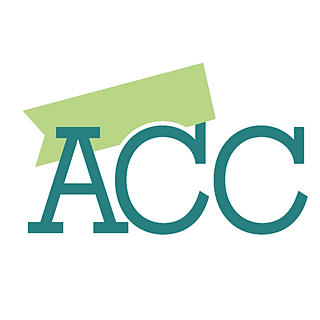Building a Sustainable Future: Waste Reclamation in Phoenix's Construction Industry
- Arizona Contractor & Community
- Aug 26, 2025
- 3 min read
Todd Thomas, Founder and CEO of Woodchuck
Phoenix, Arizona, is experiencing a construction boom driven by population growth, industrial expansion, and infrastructure development. While this growth supports economic development, it also generates significant construction waste, contributing to environmental challenges. By embracing sustainable waste reclamation practices and leveraging cutting-edge technologies like artificial intelligence (AI), Phoenix’s construction industry has the opportunity to transform into a model of eco-friendly development.

Addressing Waste Across Construction Trends
As multifamily housing developments rise across the city, sustainable practices can significantly reduce waste. Materials like wood, cardboard, plastic, and metal, often discarded during construction, can be salvaged and repurposed. For example, reclaimed wood can be used for flooring or decorative elements, remanufacturing, energy production, or carbon removal and storage.
Phoenix's industrial and technological expansion, including large-scale manufacturing facilities, also presents an opportunity for material recovery. Structural steel, concrete, asphalt, and glass waste can be recycled into new projects, such as road construction or building foundations. Additionally, infrastructure upgrades like rail extensions and airport enhancements can benefit from crushed concrete and asphalt reuse, reducing landfill contributions.
Redeveloping older properties into mixed-use spaces, such as the transformation of Paradise Valley Mall, showcases how reclamation can be embedded into urban renewal. Bricks, wood beams, and decorative features salvaged from demolition can find a second life in new developments, reducing the need for virgin materials. Furthermore, incorporating reclaimed materials into visible elements like flooring and walls promotes sustainability for tenants and visitors alike.
The Role of AI in Waste Reclamation
Artificial intelligence is revolutionizing waste reclamation by optimizing processes and improving efficiency. AI-powered systems can analyze construction site data to predict waste generation and identify opportunities for reclamation. For instance, sorting robots equipped with advanced sensors can quickly and accurately separate reusable materials, such as wood and steel, from debris.
AI is a game-changer in wood waste reclamation. Automated systems can sort wood by type, quality, and condition, enabling its reuse in various applications, from structural elements to interior finishes. AI algorithms can also match reclaimed materials to specific project needs, reducing dependence on new resources and lowering costs.
For large-scale projects, AI-enabled monitoring tools track material flows and flag opportunities for reuse before waste is created. Predictive models ensure that reclaimed resources are allocated efficiently, while real-time quality control systems guarantee that repurposed materials meet safety and performance standards.
Overcoming Challenges with Sustainability
The rising costs of construction materials and ongoing labor shortages in Phoenix present both challenges and opportunities. Sustainable practices, such as reclaiming and reusing materials, offer cost-effective solutions to these issues. Establishing material banks—central repositories for salvaged materials—can support multiple projects, reducing supply chain dependencies and material costs. At the same time, training construction crews in material identification and reclamation ensures a skilled workforce for sustainable projects.
AI further addresses these challenges by enhancing workforce management. Tools that optimize labor allocation to reclamation tasks streamline operations, while predictive models ensure that reclaimed materials are readily available for future projects. These innovations not only support sustainability but also improve project timelines and budgets.
A Blueprint for Sustainable Growth
Phoenix’s construction industry is at a crossroads. With rapid growth comes the responsibility to minimize environmental impact and the opportunity to drive efficiencies and reduce costs. Integrating waste diversion and reclamation practices into every stage of development—from multifamily housing and industrial facilities to infrastructure and mixed-use projects—can significantly reduce landfill usage and conserve and reuse valuable resources. The industry can scale sustainable practices efficiently by leveraging AI to optimize these efforts.
The future of construction in Phoenix lies in balancing growth with sustainability. Waste reclamation, supported by innovative technologies, ensures that the city’s development is vibrant, efficient, and environmentally responsible. With the right strategies, Phoenix can lead the way in building a greener, more efficient, and more sustainable future.





Comments